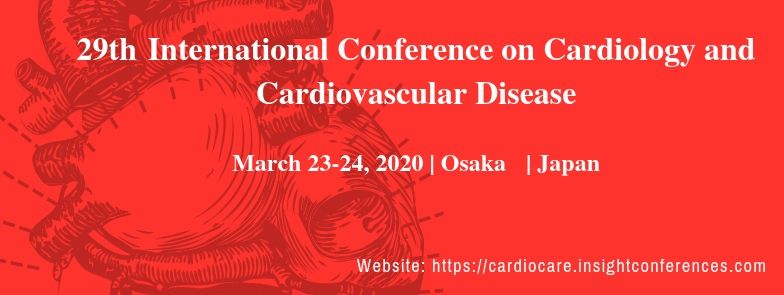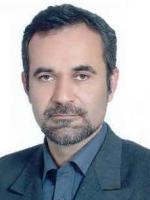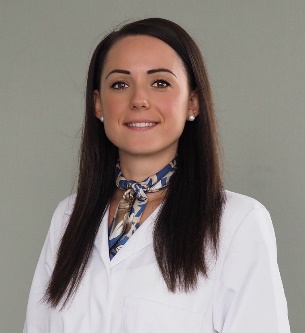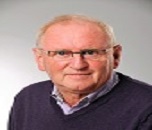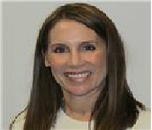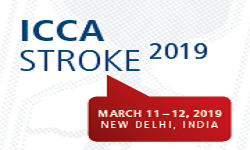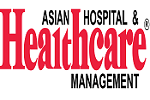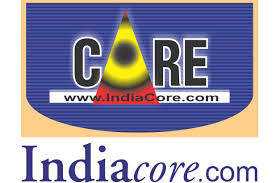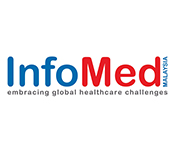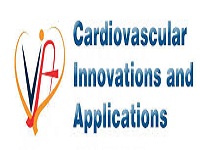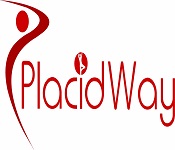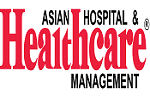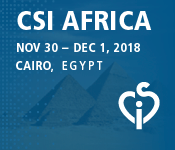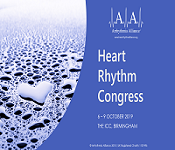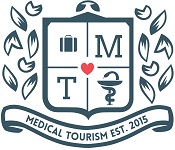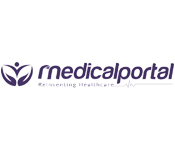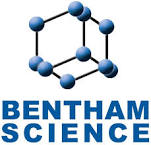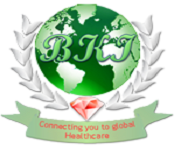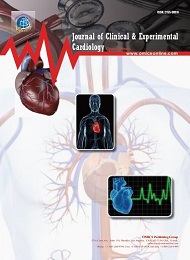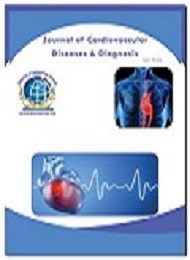Theme: Outreaching the Rhythm for a Healthy Heart
Cardio Care 2020
Conference Series LLC Ltdproudly announces the “29th International Conference on Cardiology and Cardiovascular Diseases” which will be held during March 23-24, 2020 at Osaka, Japan. The theme of conference is “Outreaching the Rhythm for a healthy heart” that focuses to share novel approaches related to Cardiology field and exploring the challenges concerning excellence in Cardio research and advancements. The motive of the event is to generate awareness that will keep medical professionals abreast of the problems affecting the prevention, diagnosis, and treatment of cardiovascular disease. Discussion on new technology advancement in the field of Cardiovascular Disease, current practices in cardiovascular therapy, Cardiac progenitor cells, Hypertension for the primary care clinician, cardiac imaging, Heart failure, Congestive heart failure, Sports Cardiology and more. Lectures will provide a comprehensive state-of-the-art update of the clinical uses of various techniques in the diagnosis, prognosis, and management of common heart diseases.
Conference Series aims is to provide an opportunity to share knowledge, expertise along with unparalleled networking opportunities between a large number of medical professionals like Directors, Heads, Deans, Professors, Scientists, Researchers, Cardiologists, Founders and Employees of the related companies, Associations, Organizations, Laboratory members and Young researchers working in the field of Cardiology & Heart treatment. This conference mainly focuses on spreading the awareness about challenges in these fields and how to prevent and manage the techniques of cardiology.
Why to attend?
Encounter the target market with members from across the globe, committed to learn about novel technologies and innovations in Cardiovascular Care. This is the best opportunity to outreach the largest gathering of participants from around the world. Conduct presentations distribute and update knowledge about the advancements in Clinical Cardiology, Cardiac Imaging, and Cardiac Regeneration and in different fields of cardiology by receiving name recognition at this 2-days event. World-eminent speakers, most recent researches, latest treatment techniques and the advanced updates in Cardiology are the principal features of this conference. The Conference will comprise of major sessions designed to offer comprehensive lectures that address current issues in various field of Cardiovascular & cardiac diseases. The benefits provided to the attendees are:
- Certificates will be provided to all speakers, delegates and students
- Opportunity to meet world’s renowned at this event
- Keynote forums by Prominent Physicians & Professors
- Best platform for Global business and networking opportunities
- Oral/Poster presentations by Young Researchers
Our Organization would be privileged to welcome the:
- Directors of Clinical cardiology, Interventional Cardiology, Nuclear Cardiology, Pediatric Cardiology, Sports Cardiology or related Programs or Associations
- Heads, Deans and Professors of Clinical cardiology, Interventional Cardiology, Nuclear Cardiology, Pediatric Cardiology, Sports Cardiology and related departments
- Scientists and Researchers
- Doctors
- Writers
- Founders and Employees of the related companies
- Clinical cardiology, Interventional Cardiology, Nuclear Cardiology, Pediatric Cardiology, Sports Cardiology Associations and Organizations
- Laboratory members and Students working in the field of Nuclear Cardiology
Track 1: Clinical Cardiology
Cardiology is a branch of medicine deals with disorders of the heart as well as parts of the circulatory system. Clinical Cardiology includes studies related to cardiac diseases such as congenital heart diseases, coronary artery disease, heart failure, cardiovascular heart disease, and their epidemiology and pathophysiology of the heart. The therapeutic procedures involving diagnosis and management of cardiac diseases like electrophysiology, cardiovascular devices, cardiac regeneration, cardiac medicine, cardiac surgery, and identification of risk factors for cardiovascular diseases. The Section of Clinical Cardiology access to specialized inpatient, outpatient heart care and treatment of Angina, artery problems, valvular heart disease, and heart failure. The one who specialize in this field of medicine are called cardiologists.
Related Conferences:
25th International Conference on Cardiovascular and Thoracic Surgery, March 27-28, 2019 Sydney, Australia; 24th Annual Cardiologists Conference, June 11-13, 2018 Spain; Global Cardiology Summit, October 22-23, 2018 Osaka, Japan; 9th International Conference on Cardiac Surgery, September 20-21, 2018 Oslo, Norway
Track 2: Pediatric Cardiology
A pediatric cardiologist is a pediatrician who has received extensive training in diagnosing and treating children's cardiac problems. Evaluation and treatment may begin with the fetus since heart problems can now be detected before birth and also responsible for the diagnosis of congenital heart defects, performing diagnostic procedures such as echocardiograms, cardiac catheterizations, and for the on-going management of the sequel of heart disease in infants, children and adolescents. The division is actively involved in research aimed at preventing both congenital and acquired heart disease in children. Congenital heart deficiency is unique from the types of heart diseases that are common among adults. Repairing hearts in small bodies todays an added challenge.
Related Conferences:
25th International Conference on Cardiovascular and Thoracic Surgery, March 27-28, 2019 Sydney, Australia; 24th Annual Cardiologists Conference, June 11-13, 2018 Spain; Global Cardiology Summit, October 22-23, 2018 Osaka, Japan; 9th International Conference on Cardiac Surgery, September 20-21, 2018 Oslo, Norway
Track 3: Cardiovascular Disease
Cardiovascular disease (CVD) is a class of diseases that involve the heart or blood vessels. Cardiovascular disease includes coronary artery diseases (CAD) such as angina and myocardial infarction (commonly known as a heart attack). It's usually associated with a build-up of fatty deposits inside the arteries – known as atherosclerosis – and an increased risk of blood clots. It can also be associated with damage to arteries in organs such as the brain, heart, kidneys and eyes. Cardiovascular disease is a term that refers to more than one disease of the circulatory system including the heart and blood vessels, whether the blood vessels are affecting the lungs, the brain, kidneys or other parts of the body.
Related Conferences:
25th International Conference on Cardiovascular and Thoracic Surgery, March 27-28, 2019 Sydney, Australia; 24th Annual Cardiologists Conference, June 11-13, 2018 Spain; Global Cardiology Summit, October 22-23, 2018 Osaka, Japan; 9th International Conference on Cardiac Surgery, September 20-21, 2018 Oslo, Norway
Track 4: Heart Disease and Failure
Heart diseases are the disorders that affect the heart. Diseases under the heart diseases umbrella include blood vessel diseases, such as coronary artery disease, heart rhythm problems (arrhythmias), and heart defects i.e. congenital heart defects, Rheumatic heart disease, Hypertensive heart disease, Ischemic heart disease, Hypertension etc.
Heart failure (HF) sometimes known as congestive heart failure is a common condition that develops after the heart muscle doesn't pump blood as well as it should. Heart failure occurs when the main pumping chambers of your heart (the ventricles) may become stiff and not fill properly between beats especially during increased activity or under stress. In addition, the heart muscle may become damaged or weakened and couldn’t relax properly to accommodate the flow of blood back from the lungs to the heart. The term “Heart failure” doesn’t mean that the heart has stopped its functions. However, heart failure is a serious condition that requires medical care.
- Hyper rheumatic heart disease
- Inflammatory heart disease
- Cardiac arrhythmias
- Cerebrovascular disease
- Coronary artery disease
- Aneurysm
- Cardiomyopathy
Related Conferences:
25th International Conference on Cardiovascular and Thoracic Surgery, March 27-28, 2019 Sydney, Australia; 24th Annual Cardiologists Conference, June 11-13, 2018 Spain; Global Cardiology Summit, October 22-23, 2018 Osaka, Japan; 9th International Conference on Cardiac Surgery, September 20-21, 2018 Oslo, Norway. 14th Clinical & Experimental Cardiology Conference November 06-07, 2019 Las Vegas, USA; 22nd World Cardiology Conference December 11-12, 2019 Philadelphia, USA.
Track 5: Diabetic Cardiovascular Disease
The term diabetic cardiovascular disease (DCD) refers to heart disease that develops in people who have diabetes which increases your risk of heart attack and clot-related stroke (cardiovascular events). Peripheral artery disease- a case in which your arteries narrow, reducing blood discharge to your arms and legs, also increases your risk of cardiovascular accident. Diabetes is a disease in which the body's blood glucose (sugar) level is too high and affects your body's ability to produce or use insulin. Normally, your body turns the food you eat into energy. Insulin is released to aid transport this energy to the cells. Insulin acts as a “key.”
Related Conferences:
25th International Conference on Cardiovascular and Thoracic Surgery, March 27-28, 2019 Sydney, Australia; 24th Annual Cardiologists Conference, June 11-13, 2018 Spain; Global Cardiology Summit, October 22-23, 2018 Osaka, Japan; 9th International Conference on Cardiac Surgery, September 20-21, 2018 Oslo, Norway
Track 6: Obesity & Stroke
Obesity increases the risk for heart disease and stroke. But it harms more than just the heart diagnosis and blood vessel system. It's also a major cause of gallstones, osteoarthritis and respiratory problems. In addition to weight gain is a frequent consequence of heart damaging lifestyle choices such as lack of exercise & a fat laden diet. Obesity is intimately intertwined with multiple health conditions that underlie cardiovascular disease including high blood pressure, diabetes, and abnormal blood cholesterol. Having diabetes or pre-diabetes puts one at increased risk for heart disease and stroke. One can lower its risk by keeping the blood glucose (also called blood sugar), hypertension and blood cholesterol close to the recommended target numbers the levels suggested by diabetes experts for good health. Stroke and coronary heart disease can be caused by the same problem atherosclerosis.
- Diabetes Mellitus and Stroke
- Abdominal Obesity
- Vascular dementia
- Abnormal cholesterol and high triglycerides
- Hemorrhagic Strokes (Bleeds)
- Metabolic syndrome
Related Conferences:
14th Clinical & Experimental Cardiology Conference November 06-07, 2019 Las Vegas, USA; 22nd World Cardiology Conference December 11-12, 2019 Philadelphia, USA; USA; Pre HT 2016 - The fourth International Conference on Prehypertension, Hypertension and Cardio Metabolic Syndrome, Venice, Italy; World Congress on Heart Failure 29 April-02 May 2019 Paris, France; The European Society of Cardiology Congress August 26 - 30 2019 Spain.
Track 7: Cardiac Regeneration
Cardiac regeneration is reparative stem cells have the capability to restore function to damaged tissue by renewing cell growth in cardiac cells destroyed by heart disease or a rapidly evolving and controversial field of research. A decade ago, Stem cell-based therapies as considered as the clinical trials for cardiac regeneration. Now, bone marrow derived stem cells (BMCs), adult stem cells from adipose or cardiac tissue are used in current clinical studies with inconsistent results but the outcomes in terms of feasibility and safety are encouraging in cardiac regeneration. In future, myocardial regeneration, transplantation of stem or progenitor cells, stimulation of endogenous cardiac repair by pharmacological agents and Tissue engineering will play a major role in cardiac regeneration.
Related Conferences:
25th International Conference on Cardiovascular and Thoracic Surgery, March 27-28, 2019 Sydney, Australia; 24th Annual Cardiologists Conference, June 11-13, 2018 Spain; Global Cardiology Summit, October 22-23, 2018 Osaka, Japan; 9th International Conference on Cardiac Surgery, September 20-21, 2018 Oslo, Norway
Track 8: Arrhythmias
An arrhythmia is the irregularity with the rate or rhythm of your heartbeat. It means that your heart beats too quickly, too slowly or with an uneven pattern. If the heart beats faster than normal, it is so-called tachycardia. If the heart beats too slowly, it is so-called bradycardia. Another common type of arrhythmia is atrial fibrillation; here an irregular and fast heartbeat occurs. There are hundreds of different types of heart arrhythmias. The normal rhythm of the heart, so-called normal sinus rhythm, can be disturbed through failure of automaticity, such as sick sinus syndrome, or through overactivity, such as inappropriate sinus tachycardia. Several factors may affect your heart's rhythm, for example sudden heart attack, congenital heart defects, stress and smoking. Some elements or medications can also cause arrhythmias. In general, the seriousness of cardiac arrhythmias depends on the presence or absence of structural heart disease.
Related Conferences:
Cardiovascular Conferences | Heart Conferences | Cardiac Surgery Conferences | Cardiovascular 2019 | Cardiovascular Disease Conferences | Cardiovascular Physiology Conferences | Hypertension Conferences | Coronary Artery Diseases Conferences | Stroke Conferences | Heart Failure Conferences
Track 9: Cardiac Surgery
Cardiovascular surgery which is also known as surgery thoracic surgery is operated on the heart or great vessels by cardiac surgeons and it is the field of medicine involved in surgical treatment of organs inside the thorax. There are five types of cardiac surgery
1) Open heart surgery
2) Modern beating-heart surgery
3) Heart transplant
4) Coronary artery bypass grafting
5) Minimally invasive surgery and surgeries are done to treat complexity of ischemic heart disease, correct congenital heart disease, or treat valvular heart disease from various causes including endocarditis, rheumatic heart disease and atherosclerosis and advancement of cardiac surgery and cardiopulmonary bypass techniques has greatly reduced the mortality rates of these procedures. The surgery requires postoperative care to avoid complications. As mentioned, Coronary artery bypass grafting (CABG) is the most common type of heart surgery. CABG improves blood flow to the heart.
Related Conferences:
25th International Conference on Cardiovascular and Thoracic Surgery, March 27-28, 2019 Sydney, Australia; 24th Annual Cardiologists Conference, June 11-13, 2018 Spain; Global Cardiology Summit, October 22-23, 2018 Osaka, Japan; 9th International Conference on Cardiac Surgery, September 20-21, 2018 Oslo, Norway
Track 10: Cardio-oncology
Cancer and cardiovascular disease are the leading causes of mortality in many parts of the world and Cardio-oncology is the intersection of heart conditions in patients who have been treated for cancer. There are several reasons for both diseases occurring in the same patient. Coronary artery disease (CAD) and Cancer share risk factors such as age, use of tobacco and obesity. Other reasons may be the consequences of radio- and chemo-therapy in long-term survivors of malignancy. These treatments have a direct impact on the heart, which require, in some cases, surgical correction. Malignancy can also occur during long-term follow-up after coronary artery bypass graft (CABG). The increase in diagnostic facilities makes the detection of heart disease and treatable cancer also more likely.
- Platinum-Based Chemotherapy Agents
- Novel Targeted Therapies
- Radiation-Induced Heart Disease
- Cardio-oncology programs
- Targeting Tyrosine Kinases for Cancer Therapy
- Chemotherapy-related cardiac dysfunctions
Related Conferences:
25th International Conference on Cardiovascular and Thoracic Surgery, March 27-28, 2019 Sydney, Australia; 24th Annual Cardiologists Conference, June 11-13, 2018 Spain; Global Cardiology Summit, October 22-23, 2018 Osaka, Japan; 9th International Conference on Cardiac Surgery, September 20-21, 2018 Oslo, Norway 14th Clinical & Experimental Cardiology Conference November 06-07, 2019 Las Vegas, USA; 22nd World Cardiology Conference December 11-12, 2019 Philadelphia, USA.
Track 11: Sports Cardiology
Sports Cardiology achieves heart screenings that detect potentially serious cardiovascular issues in young athletes. Sudden cardiac arrest (SCA) is the major reason of death in exercising young athletes and is most commonly set off by problems as structural heart disorders or electrical circuitry issues which are not commonly found during routine physical examinations. Most of the conditions that cause sudden cardiac death in young athletes are evaluated by an electrocardiogram (ECG), a non-invasive test which calculates the electrical activity of the heart.
Related Conferences:
25th International Conference on Cardiovascular and Thoracic Surgery, March 27-28, 2019 Sydney, Australia; 24th Annual Cardiologists Conference, June 11-13, 2018 Spain; Global Cardiology Summit, October 22-23, 2018 Osaka, Japan; 9th International Conference on Cardiac Surgery, September 20-21, 2018 Oslo, Norway
Track 12: Congenital Heart Diseases:
A congenital heart defect is a problem with the structure of the heart which is present since birth. Congenital heart defects are the most common type of birth defects. The defects can involve the walls of the heart, the valves of the heart, and the arteries and veins near the heart. They can disrupt the normal flow of blood through the heart. Atherosclerosis is a condition that occurs when a substance called plaque builds up in the arteries’ walls. This build-up reduces the width of the arteries, making it difficult for blood to flow through. If a blood clot occurs, it can cease the blood flow. This can result in a heart attack or stroke. Some heart defects also exist in individuals due to birth defects.
Related Societies:
Europe: European Society of Cardiology; British Cardiovascular Society; World Heart Federation; British Association for Cardiovascular Prevention and Rehabilitation; World Heart Failure Society; Austrian Heart Foundation; Austrian Society of Cardiology; Philippine Heart Association; Belgian Society of Cardiology; Spanish Society of Cardiology; British Cardiac Society; International Academy of Cardiology; British Heart Foundation; British Hypertension Society.
Track 13: Women Cardiology
Cardiology rate of increase for women much slower than other areas. 29% of women did not receive any information about radiations.
Cardiovascular diseases continue to be the leading cause of death among women in the states. Sex-specific data focused on cardiovascular disease have been increasing steadily yet is not routinely collected nor translated into practice. This comprehensive review focuses on novel and unique aspects of cardiovascular health in women and sex differences as they relate to clinical practice in the prevention, diagnosis, and treatment of cardiovascular disease.
- Pregnancy-related disorders and CVD risk association
- Persistence of weight gain after pregnancy
- Radiation and chemotherapy for breast cancer
- ASA in women with diabetes mellitus
- Ischemic heart disease in women
- Acute coronary syndromes in women
Related Conferences:
14th Clinical & Experimental Cardiology Conference November 06-07, 2019 Las Vegas, USA; 22nd World Cardiology Conference December 11-12, 2019 Philadelphia, USA; USA; Pre HT 2016 - The fourth International Conference on Prehypertension, Hypertension and Cardio Metabolic Syndrome, Venice, Italy; World Congress on Heart Failure 29 April-02 May 2019 Paris, France; The European Society of Cardiology Congress August 26 - 30 2019 Spain.
Track 14: Invasive and Interventional Cardiology
Interventional cardiology is a chapter of cardiology that deals particularly with the catheter-based treatment of structural heart diseases. A huge number of procedures can be acted on the heart by catheterization. This most commonly includes the insertion of a sheath into the femoral artery (but, in practice, any large peripheral artery or vein) and cannulating the heart below X-ray visualization (usually fluoroscopy).
- Cardiac catheterization
- Angioplasty
- Coronary Stents
- Embolic protection
- Percutaneous valve repair
- Balloon valvuloplasty
- Atherectomy
Related Conferences:
6th Global Experts Meeting on Cardiovascular Pharmacology, July 12-13, 2019 Yokohama, Japan, 26th Annual Cardiologists Conference, July 10-11,2019 Osaka, Japan, 25th World Cardiology Conference, July 10-11, 2019 Osaka, Japan, 31st Annual Cardiologists Conference, June 17-19, 2019 Rome, Italy, European Cardiology Congress, July 01-02, 2019 Prague, Czech Republic.
Track 15: Hypertension
Hypertensive heart disease is caused by the high blood pressure that affects the heart. The heart working under increased pressure leads to some other heart disorders. Hypertensive heart disease includes heart failure, thickening of the heart muscle, coronary artery disease, etc. In the absence of heart failure, hypertension, with or without enlargement of the heart (left ventricular hypertrophy) is usually symptomless. Hypertensive heart disease can cause serious health problems. It’s the leading cause of death from high blood pressure.
- Coronary artery atherosclerosis.
- Diastolic dysfunction due to other etiologies.
- Athlete's heart (with LVH)
- Hypertrophic cardiomyopathy.
- Congestive heart failure due to other etiologies.
- Atrial fibrillation due to other etiologies.
Related Conferences: Heart Conferences | Heart disease Conferences | Heart failure Conferences |Cardiology Conference 2019| Cardiology Meeting | Cardiology Conferences | Cardiovascular Conferences | Cardiac Surgery Conferences | World Heart Congress | International Cardiology Conferences | Cardiology Conference 2019 USA | Heart Congress 2019
Track 16: Molecular and Cellular Cardiology
Molecular and Cellular Cardiology is a new and fast-growing area of cardiovascular medicine that aims to apply molecular biology techniques for the mechanistic investigation, diagnosis, prevention and treatment of cardiovascular disease. As an emerging discipline, it has changed conceptual thinking of cardiovascular development, disease etiology and pathophysiology and advancing knowledge of the mechanisms responsible for both normal and diseased cardiovascular function.
Related Conferences:
Heart Conferences | Heart disease Conferences | Heart failure Conferences |Cardiology Conference 2019| Cardiology Meeting | Cardiology Conferences | Cardiovascular Conferences | Cardiac Surgery Conferences | World Heart Congress | International Cardiology Conferences | Cardiology Conference 2019 USA | Heart Congress 2019
Track 17: Cardiovascular Engineering
Cardiovascular Engineering is a wide spectrum of research, from basic to transitive in all attributes of cardiovascular physiology and medical treatment. The distribution of research that utilizes engineering principles and methods to enhance basic knowledge and technological solutions related to cardiovascular system. Coverage ranges from subcellular to systems level topics, including other implantable medical devices such as hemodynamics, tissue biomechanics, functional imaging, surgical devices, electrical physiology, tissue engineering and regenerative methods, diagnostic tools, transmission and delivery of biologics and biosensors.
Related Conferences:
Heart Conferences | Heart disease Conferences | Heart failure Conferences | Cardiology Conference 2019| Cardiology Meeting | Cardiology Conferences | Cardiovascular Conferences | Cardiac Surgery Conferences | World Heart Congress | International Cardiology Conferences | Cardiology Conference 2019 USA | Heart Congress 2019
Track 18: Cardiovascular Toxicology and Pharmacology
Cardiovascular pharmacology is the main study of the effects of drugs on the entire cardiovascular system, which includes the heart and blood vessels. Cardiovascular Toxicology deals with the adverse effects on the heart or blood systems which result from exposure to toxic chemicals. It describes safety data of detrimental effects of new cardiovascular drugs. Pharmacology of vascular endothelium deals with modifications of endothelial cells and the vasculature play a crucial part in the pathogenesis of a wide range of the most dreadful of human diseases, as endothelial cells have the vital role of participating in the maintenance of patent and functional capillaries.
Related Conferences:
Heart Conferences | Heart disease Conferences | Heart failure Conferences |Cardiology Conference 2019| Cardiology Meeting | Cardiology Conferences | Cardiovascular Conferences | Cardiac Surgery Conferences | World Heart Congress | International Cardiology Conferences | Cardiology Conference 2019 USA | Heart Congress 2019
Track 19: Percutaneous coronary interventions
Percutaneous coronary intervention (PCI) is a non-surgical procedure used to treat narrowing (stenosis) of the coronary arteries of the heart found in coronary artery disease. After accessing the blood stream through the femoral or radial artery, the procedure uses coronary catheterization to visualize the blood vessels on X-ray imaging. After this, an interventional cardiologist can perform a coronary angioplasty, using a balloon catheter in which a deflated balloon is advanced into the obstructed artery and inflated to relieve the narrowing; certain devices such as stents can be deployed to keep the blood vessel open. Various other procedures can also be performed. When coronary artery disease causes chest pain or a heart attack, percutaneous coronary interventions, such as angioplasty alone or with a stent, can restore blood flow to your heart.
Related Conferences:
Heart Conferences | Heart disease Conferences | Heart failure Conferences |Cardiology Conference 2019| Cardiology Meeting | Cardiology Conferences | Cardiovascular Conferences | Cardiac Surgery Conferences | World Heart Congress | International Cardiology Conferences | Cardiology Conference 2019 USA | Heart Congress 2019
Track 20: Cardiac Pharmacology
Cardiovascular pharmacology deals with the medication of cardiac diseases. The Cardiac Drugs are used to treat conditions of the related to heart or the circulatory or vascular biology Many categories of cardiovascular agents are available to treat the various cardiovascular conditions. The most commonly used sub-category drugs include Sodium, potassium, calcium channel blockers, ACE-inhibitors and Cardiac biomarkers. There are many types of cardiovascular drugs in the market that include Cardiac glycosides, anti-coagulants, anti-arrhythmic agents, anti-anginal agents and anti-hypertensive agents.
- Drug-Induced Cardiac Toxicity
- Novel Anti-Inflammatory Therapies for Atherosclerosis
- Development of Novel Anti-Ischemic Agents
- Beta Blockers Blocking
- Cardiac Glycoside
Related Conferences:
14th Clinical & Experimental Cardiology Conference November 06-07, 2019 Las Vegas, USA; 22nd World Cardiology Conference December 11-12, 2019 Philadelphia, USA; USA; Pre HT 2016 - The fourth International Conference on Prehypertension, Hypertension and Cardio Metabolic Syndrome, Venice, Italy; World Congress on Heart Failure 29 April-02 May 2019 Paris, France; The European Society of Cardiology Congress August 26 - 30 2019 Spain.
Track 21: Cardiac Nursing
Cardiac nursing is a registered nurse who specializes to work with patients who suffer from various conditions of the cardiovascular system. Cardiac nurses help to treat conditions such as unstable angina, cardiomyopathy, coronary artery disease, congestive heart failure, myocardial infarction and cardiac dysrhythmia under the direction of a cardiologist. Cardiac nurses work in many different environments, including coronary care units (CCU), cardiac catheterization, intensive care units (ICU), operating theatres, cardiac rehabilitation centers, clinical research, cardiac surgery wards, cardiovascular intensive care units (CVICU) and cardiac medical wards.
- Cardiac remodeling
- Hemodynamic monitoring
- Monitoring cardiac and vascular readings
- Intensive hemodialysis
Related Conferences:
14th Clinical & Experimental Cardiology Conference November 06-07, 2019 Las Vegas, USA; 22nd World Cardiology Conference December 11-12, 2019 Philadelphia, USA; USA; Pre HT 2016 - The fourth International Conference on Prehypertension, Hypertension and Cardio Metabolic Syndrome, Venice, Italy; World Congress on Heart Failure 29 April-02 May 2019 Paris, France; The European Society of Cardiology Congress August 26 - 30 2019 Spain.
Track 22: Current Research in Cardiology
Advances in medicine means that if coronary heart disease (CHD) is detected at an early stage it can be treated successfully to extend the survival rate. Successful treatment is more likely if the disease is detected at its earliest stages. Our current research focuses on the early detection of CHD in order to halt or reverse the progress of the disease. The on-going research includes pioneering the use of heart scanning in the early diagnosis of heart disease in diabetics, Development of Nuclear Cardiology techniques for the detection of heart disease, Drug development and evaluation of treatments used in heart disease, Identification of novel biological markers to predict the presence of heart disease, Analysis of ethnic and socio-economic differences in heart disease risk.
Related Conferences:
25th International Conference on Cardiovascular and Thoracic Surgery, March 27-28, 2019 Sydney, Australia; 24th Annual Cardiologists Conference, June 11-13, 2018 Spain; Global Cardiology Summit, October 22-23, 2018 Osaka, Japan; 9th International Conference on Cardiac Surgery, September 20-21, 2018 Oslo, Norway
Related Cardiology Societies and Associations:
USA: The American Society for Preventive Cardiology; American Society of Nuclear Cardiology; American Heart Association; ACC; American Stroke Association; Society for Cardiovascular Angiography and Interventions; Arizona Society of Echocardiography; Brazilian Society of Cardiology; Heart Failure Society of America; American College of Cardiology, Georgian Society of Cardiology, Association of Cardiovascular Prevention and Rehabilitation; Elsevier Society Partners in Cardiology; American Society for Preventive Cardiology; American Society of Echocardiography; American Society of Hypertension; Brazilian Society of Hypertension; Canadian Cardiovascular Society; Argentine Society of Cardiology; Canadian Association of Interventional Cardiology ; Congenital Cardiac Anesthesia Society; The American Association of Cardiovascular and Pulmonary Rehabilitation; Vascular and Endovascular Surgery Society, American College of Cardiology.
Europe & UK: European Society of Cardiology; British Cardiovascular Society; British Association for Cardiovascular Prevention and Rehabilitation; World Heart Failure Society; Austrian Heart Foundation; Austrian Society of Cardiology; Belgian Society of Cardiology; Spanish Society of Cardiology; British Cardiac Society; International Academy of Cardiology; British Heart Foundation; British Hypertension Society; British Junior Cardiologists Association; Croatian Cardiac Society; European Society of Cardiology; British cardiology society; Luxembourg Society of Cardiology; British Heart Failure Society; Association of Cardiologists of Bosnia & Herzegovina; British Heart Foundation; Spanish Heart Foundation; Austrian Heart Foundation; Belorussian Scientific Society of Cardiologists.
Middle-East: Algerian Society of Hypertension, Russian Society of Cardiology, Armenian Cardiologists Association, Saudi Heart Association, Turkish Society of Cardiology, Emirates Cardiac Society, Egyptian Cardiology Society, Iranian Heart Association.
World Cardiology Meeting is a two-day programme of presentations, panel discussions and interactive dialogue at the conference on leading the way in the research field of cardiology, which is going to be held during March 23-24, 2020 at Osaka, Japan
Theme: Outreaching the Rhythm for a healthy heart
The organizing committee is gearing up for an exciting and informative conference program including plenary lectures, symposia, workshops on a variety of topics, poster presentations and various programs for participants from all over the globe. We invite you to join us at the World Heart Congress, where you will be sure to have a meaningful experience with scholars from around the world. All Organizing Committee members of the 29th International Conference on Cardiology and Cardiovascular Diseases look forward to meet you in Osaka, Japan.
For more details please visit: https://cardiocare.insightconferences.com/
Cardio Care 2020 provides a comprehensive introduction to diseases of the cardiovascular system, how they present, how they are diagnosed, how provides a comprehensive introduction to diseases of the cardiovascular system, how they present, how they are diagnosed, how they are prevented, and how they are treated. Students learn to identify the integral links between anatomy, physiology, pathology, and basic sciences with clinical medicine and other essential aspects of patient care for ambulatory and hospitalized patients who have cardiovascular disorders. they are prevented, and how they are treated. We invite you to join us at the “29th International Conference on Cardiology and Cardiovascular Diseases”, where you will be sure to have a meaningful experience with scholars from around the world.
Growth of Cardiology Market: -
The global medicine market includes interventional, internal organ devices. The worldwide interventional medicine devices market has been expected to understand $25.16 billion by 2020. On the opposite hand, the Asia Pacific market is anticipated to travel on top of $6.4 billion by 2022, growing at a moneymaking rate over the forecast amount. The worldwide marketplace for vas surgical devices employed in the hospital room was valued regarding $31 billion in 2010. By 2015, this market ranged virtually $48 billion at a CAGR of 8.7%. By 2017, it's calculable to succeed in a value of $70. the expansion is attributed to the presence of enormous initial opportunities, rising tending expense, disorder incidence rate, and income levels. North America interventional medicine devices market was the biggest with revenue share calculable at over 35.0% in 2013. The report covers three major segments of cardiology surgery, devices and drugs market which includes surgeries, devices and drugs. Cardiovascular diseases are the number one cause of death globally. Some of the major CVDs include coronary heart diseases, stroke, hypertensive heart diseases, inflammatory heart diseases, rheumatoid heart diseases and others. Coronary heart diseases are the leading cause of death followed by strokes. The prevalence and incidence rate of heart diseases are on a rise; especially in major emerging countries such as India, China and Japan. The market of cardiology surgery, devices and drugs are also on a rise.
So, medicine conferences are going to be a good success today because the awareness for the treatment of vas diseases is incredibly necessary among the individuals and everyone can come back to grasp regarding the new researches occurring and inventions within the field of medicine.
Importance and Scope
29th International Conference on Cardiology and Cardiovascular Diseases will be the best platform for all the scientists, cardiologists, oncologists, electro physiologists, surgeons, nurses, research scholars, students who are working in this field to exchange their knowledge related to Cardiology and Cardiac Surgery. This international event is an effort to find an alternative for invasive imaging technique against heart diseases and heart failure conditions in adults & children.
The world is becoming increasingly vulnerable to public health challenges and risks for cardiac diseases bursts. And the Conference provides a unique opportunity for Academic leaders, educators and, clinicians as well as for experts and scholars of higher education from all over the world to con-vane and share novel ideas on crucial issues and trends in the area of cardiology. From prevention through optimal care and, finally, to targeted treatment modes and rehabilitation the whole range of cardiovascular disease will be presented with world-class faculty, researchers, and mentors as well as healthcare clinical professionals.
The aim of this conference is stimulating new ideas for treatment and analyze the current market for the future direction of cardiovascular drugs, devices, and diagnostics, with an emphasis on newer products that will be beneficial across the spectrum of cardiology. Lectures will provide a comprehensive state-of-the-art update of the clinical uses of various techniques in the diagnosis, prognosis, and management of common heart diseases.
In Europe:
The European market for interventional cardiology is leading towards maturity, mostly in Western Europe. Although the economic slowdown had a negative impact on revenues in 2012, it is expected that expanding applications of interventional systems and the popularization of hybrid solutions will drive market growth over the 2013-2017 period.
Market Trends in Europe Interventional Cardiology, finds that the market earned approximately $336.7 million in 2012 and estimates this to reach $352.6 million in 2016. Novel applications, the demand for hybrid solutions and the need for new systems in Eastern Europe will fuel market growth.
In America:
Geographically, North America has the highest market share in 2013 due to high awareness about the heart diseases. According to the Centers for Disease Control and Prevention (CDC), every year about 610,000 people in America die of heart diseases. Likewise, annually 735,000 Americans are victims of heart attacks. Thus, increasing of heart attacks in North America would increase the demand of cardiovascular drugs. However, Asia-Pacific region is expected to showcase the fastest growth rate in the future due to rise in aging population, increasing awareness and in other factors.
In Middle East:
Countries in Middle East and Africa bear a heavy burden from Ischemic heart disease. According to, Dubai Health Authority, Heart disease is the cause for every 3 in 10 deaths in the UAE. Huge funding in R&D and various initiatives by government is driving the growth for Ischemic heart Disease market in Middle East and Africa.
Middle-East and Africa Ischemic heart Disease market is growing steadily. The market is growing at the CAGR of 3.1% and expected to reach to US$ 2.84 billion by 2022.
In Asia:
Around 5 million Americans suffer from heart valve disease every year. Heart disease is considered as one of the leading causes of mortality. Thus, substantial rise in burden of heart valve disease is the major growth driver for the heart valve device market. Geographically, this report split Asia-Pacific into several key Regions, with sales (MT), revenue (Million USD), and market share and growth rate of Ischemic Heart Disease Drugs for these regions, from 2012 to 2022.
Cardiology universities:
- Harvard University, USA
- Johns Hopkins University, USA
- Swansea University, UK
- Kawasaki Medical University, Japan
- Oxford University, UK
- Cambridge University, UK
- University of Toronto, Canada
- Avalon medical University, USA
- Imperial college, London
- New York university
Globally:
- University of Louisville, Kentucky
- University of Chicago, Chicago
- Stanford University Medical Center, California
- Duke University Hospital, Durham
- University of Southern California, Los Angeles
- Kasturba Medical College, India
- University in Little Rock, Arkansas
- Thomas Jefferson University, Philadelphia
- Ohio state medical Centre, Columbus
Societies Associated with Cardiology
- London cardiovascular Society
- European Heart Rhythm Association
- European Association of Cardiovascular Imaging
- American Cardiology Association
- European Association for Cardiovascular Prevention & Rehabilitation
- Medical Association of Europe
- Acute Cardiovascular Care Association
- World Heart Federation
- European Society of Cardiology
- World Heart Failure Society
- British Cardiovascular Society
- British Association for Cardiovascular Prevention and Rehabilitation
- Association of European Pediatric and Congenital Cardiology
- Heart Valve Society
- Italian Society of Cardiology and many more!
Conference Highlights
- Clinical Cardiology
- Cardiovascular Disease
- Heart Disease and Failure
- Obesity & Stroke
- Arrhythmias
- Cardiac Surgery
- Cardio-oncology
- Congenital Heart Diseases
- Hypertension
- Pediatric Cardiology
- Diabetic Cardiovascular Disease
- Cardiac Regeneration
- Invasive and Interventional Cardiology
- Women Cardiology
- Sports Cardiology
- Molecular and Cellular Cardiology
- Cardiovascular Engineering
- Cardiovascular Toxicology and Pharmacology
- Percutaneous coronary interventions
- Cardiac Pharmacology
- Cardiac Nursing
- Current Research in Cardiology
To share your views and research, please click here to register for the Conference.
To Collaborate Scientific Professionals around the World
| Conference Date | March 23-24, 2020 | ||
| Sponsors & Exhibitors |
|
||
| Speaker Opportunity Closed | |||
| Poster Opportunity Closed | Click Here to View | ||
Useful Links
Special Issues
All accepted abstracts will be published in respective Our International Journals.
- Journal of Clinical & Experimental Cardiology
- Journal of Cardiovascular Diseases & Diagnosis
- International Journal of Cardiovascular Research
Abstracts will be provided with Digital Object Identifier by

